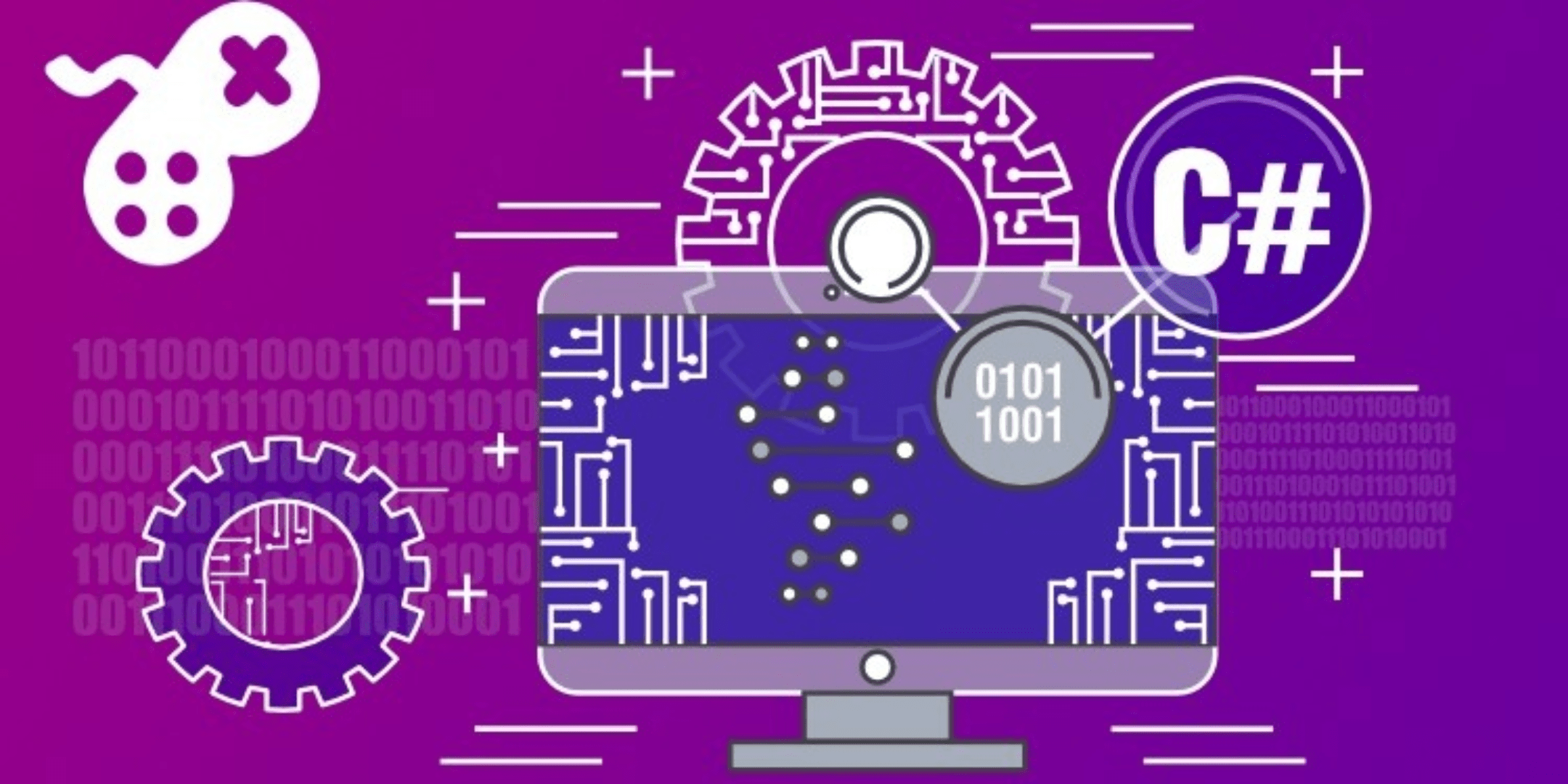
The landscape of C# game development is undergoing a revolution fueled by Artificial Intelligence (AI). While AI unlocks exciting possibilities for crafting dynamic and immersive gameplay experiences, it’s crucial to consider the ethical implications that come with its integration.
This blog post delves into the potential ethical considerations surrounding AI in C# game development. We’ll explore issues like player manipulation, overly challenging AI, and the potential for bias in AI-generated content.
AI in Games: A Growing Trend
The interest in AI-powered features within games is undeniable. A 2022 study by the Entertainment Software Association (ESA) revealed that a staggering 67% of gamers are eager to experience AI features in their games. This growing demand highlights the increasing role of AI in C# game development.
However, with this exciting integration comes the responsibility to ensure AI is implemented ethically and with player well-being at the forefront. Here are some key considerations for C# game developers:
Player Manipulation: Where Does AI Overreach?
A primary concern revolves around the potential for AI to manipulate players. C# game developers can leverage AI to subtly influence player behavior in various ways, such as:
- Encouraging Excessive Playtime: AI algorithms could track player engagement and dynamically adjust difficulty or reward systems. While this might seem beneficial for engagement, it could lead to unhealthy gaming habits if players are subtly nudged towards playing for extended periods.
- Guiding Players Towards Specific Choices: AI-powered narratives or quest design might subtly push players towards predetermined paths. This can hinder player agency and freedom within the game world, creating a feeling of being led rather than making genuine choices.
Finding the Balance: C# game developers can avoid manipulation by focusing on creating a fair and engaging gameplay experience that prioritizes player autonomy. AI should enhance player choice and empower them to make meaningful decisions, not restrict their freedom. Transparency is key – disclose the use of AI and ensure players feel in control of their in-game journey.
Examples of Ethical Player Interaction with AI:
- Personalized Difficulty Adjustments: AI can analyze player performance and adjust difficulty levels to provide a continuous challenge that motivates players to improve without feeling overwhelmed.
- Dynamic and Engaging Side Quests: AI can generate personalized side quests that cater to the player’s preferred playstyle or skill level, offering a sense of variety and replayability.
Overly Challenging AI: Fun or Frustration?
While AI can create more intelligent and adaptable enemies, there’s a risk of creating excessively challenging or frustrating encounters. In C# game development with AI, consider these points:
- The Learning Curve: New players facing highly skilled AI opponents might struggle and become discouraged, potentially leading to them quitting the game altogether. AI difficulty should adjust based on player skill level to ensure a balanced experience for everyone.
- The Frustration Factor: AI that constantly outmaneuvers or defeats players can be demoralizing. C# game developers should ensure AI presents a fair challenge that promotes player growth and mastery, not just relentless frustration.
Striking the Right Difficulty: Balance is key. AI should provide a challenge that motivates players to improve their skills without feeling insurmountable. C# game developers can offer adjustable difficulty settings or implement AI that learns player behavior to personalize challenges. Here are some additional considerations:
- Provide Clear Tutorials and Guidance: Equipping players with the knowledge and skills to overcome challenges is crucial. Clear tutorials and in-game guidance can help players understand mechanics and strategies to approach AI opponents effectively.
- Offer Multiple Difficulty Levels: Catering to a wider range of player skill levels allows everyone to have a fun and engaging experience. Adjustable difficulty settings empower players to choose a challenge that suits their preferences.
The Potential for Bias in AI-generated Content
AI algorithms are trained on vast datasets, and these datasets can contain inherent biases. This raises concerns about potential bias creeping into AI-generated content within C# games, such as:
- Gender or Racial Stereotypes: AI-powered dialogue or character generation might reflect biases present in the training data, leading to stereotypical portrayals of characters within the game. This can be insensitive and limit representation within the game world.
- Unintended Offensive Content: AI-generated storylines or dialogue might inadvertently generate offensive or discriminatory content due to biases in the training data. This can be harmful and alienate players from the game.
Promoting Diversity and Fairness: C# game developers should be mindful of potential biases and take steps to mitigate them. Here are some strategies to consider:
- Use Diverse Datasets for AI Training: The foundation of fair AI is diverse training data. By incorporating datasets that represent a wide range of demographics and perspectives, you can help ensure AI-generated content reflects a more inclusive and representative world.
- Implement Human Oversight and Filtering Mechanisms: Human oversight remains crucial. C# game developers can establish review processes to identify and address any potential bias in AI-generated content before it reaches players.
- Promote Positive Representation: Actively seek to include diverse characters, storylines, and experiences within your game. This goes beyond simply mitigating bias and actively promotes a more inclusive and positive gaming environment.
Also read: Digital Marketing Services and Web Design & Development in the USA
Conclusion: A Future of Responsible AI in C# Game Development
AI holds immense potential for C# game development, allowing for more dynamic, engaging, and personalized gameplay experiences. By harnessing the power of AI responsibly, developers can create games that not only entertain but also foster positive player experiences.
Here’s a look towards a future where AI and C# game development work in harmony:
- A Focus on Player-Centric Design: AI should enhance player agency and empower them to make meaningful choices within the game world. Transparency and ethical considerations should be at the core of AI implementation.
- Promoting Inclusivity and Diversity: C# game developers can leverage AI to create inclusive and representative experiences within their games. This fosters a more welcoming environment for players of all backgrounds.
- A Commitment to Continuous Learning: The field of AI is constantly evolving. C# game developers should stay updated on ethical best practices and adapt their approaches accordingly.
By embracing these principles, C# game developers can usher in a new era of responsible AI integration, creating games that are not only fun and engaging but also fair, inclusive, and respectful of all players. The future of AI in C# game development is bright, but it requires a commitment from developers to prioritize ethical practices and create a positive gaming experience for everyone.

























